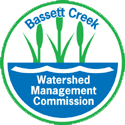News
Masjid An-Nur leads the way as an ‘Eco-Mosque’
Mon, Aug 31, 2020COVID-19 and the uprising after the death of George Floyd has affected almost everything about Masjid An-Nur and its North Minneapolis neighborhood. Before all the unexpected changes of 2020, this mosque was already planning its transformation into an ‘Eco-Mosque.’ This summer, a major landscape renovation will affirm their commitment to sustainability and environmental justice.
Since moving to its current location in the mid-90s, Masjid An-Nur has been located on a lot that creates serious runoff issues. The parking lot sits up a hill that slopes down toward the mosque’s back door. Rain and snowmelt flow downhill toward the building, and the runoff caused thousands of dollars of damage.
Two years ago, the congregation’s leader Imam Makram joined with a team of collaborators to envision a solution to both mitigate the runoff and showcase the mosque’s commitment to protecting the environment. Masjid An-Nur received two Stewardship Grants from the Mississippi Watershed Management Organization (MWMO) to design and construct rain gardens that will holistically manage drainage from their parking lot.

The MWMO Stewardship Fund supports projects led by nonprofits, government, schools, and neighborhood organizations that benefit the public and improve water quality. At Masjid An-Nur, landscape architects designed a series of rain gardens, a new retaining wall, drainage, and a courtyard that will serve as a gathering space for the community. Imam Makram sees this project as an opportunity to share the mosque’s values of supporting environmental and communal health.
“It was a real collective, community effort,” says Imam Makram, noting that Metro Blooms, congregant Kenya McKnight, Hennepin County, and the Met Council all played a role as this project came to fruition. “This is a project that we hope can be modeled in other institutions as North Minneapolis continues to grow and flourish.”
Planting for the neighborhood
Imam Makram is a longtime resident of North Minneapolis. As he grew up, he saw how the neighborhood experienced environmental neglect. A trash incinerator burned near the mosque’s current location. Houses throughout North Minneapolis had wet basements while residents experienced persistently high rates of asthma.
Eco-justice is a cause that connects with his Muslim faith. “We are called to be stewards of the resources that God has entrusted us with,” says Imam Makram. The rain garden is the latest in a long list of environmentally friendly projects at the mosque that put this value into action. Masjid An-Nur has organics recycling, LED lighting, and they receive power from the nearby solar garden at Shiloh Temple.
Other community outreach efforts already underway at Masjid An-Nur have a new urgency due to the challenges of 2020. Those programs help the community with food insecurity, affordable housing, mentoring, and employment services.
After the uprising, damage to nearby food sources and pharmacies left the mosque in a food desert. Imam Makram says the congregation’s goal is to “lean into this moment and speak to those fundamental human needs. To eat when you’re hungry, and to have a place to live and sleep, are human rights. We want to model that in word and in deed.”

Rain garden grants and cost-share opportunities
Climate change is already affecting Minnesota with tangible effects. As the MWMO notes, heavy rains have become more common in Minneapolis. As a result, more businesses, organizations, and homeowners are confronting runoff issues in their own yards.
Rain gardens are an attractive runoff solution that help protect water quality. They collect stormwater before it flows into storm drains, preventing runoff from carrying leaves, grass clippings, and pesticides into lakes and rivers. Several native plant varieties thrive in wet or moist conditions, and their deep roots help move water into the soil.
Many local cities, counties, and watershed management organizations have grants or cost share programs to support rain gardens and other projects that benefit water quality. Check out this list on Blue Thumb for more information on opportunities in your area.
In the meantime, at Masjid An-Nur, Imam Makram is eager for the day when social distancing is a distant memory. Standing on the newly installed permeable pavers, he looks forward to celebrating the new rain gardens with congregants, neighbors, and the mosque’s youth eco-team. “We want this to be a teaching site,” he says. “We’re definitely looking forward to the time of coming back together.”

